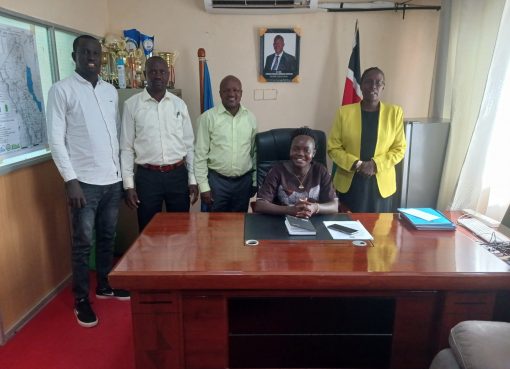Nakuru County governor Lee Kinyanjui has said the equalization fund should be enhanced to cushion poor counties that may lose out on the proposed third generation revenue sharing formula.
Kinyanjui said the issue of marginalization of some regions in the country had been politicized to advance opposition on revenue sharing formula debate before the Senate, yet the same had been addressed by the Sh20 billion equalization fund domiciled at the National Treasury.
The failure by the Senate to agree on the third basis of revenue sharing formula has consequently thrown counties deeper into financial crisis as it will now take longer for the devolved units to share out Sh316.5 billion allocated to them as equitable shareable revenue in the 2020/21 financial year.
Addressing a press conference at his offices in Nakuru, Mr Kinyanjui noted it would be painful for counties to adjust their budget adding that devolved units that are the greatest contributors to the economy have been the lowest recipients of the revenue share.
He observed that though the total contribution to the country’s Gross Domestic Product of Nairobi, Nakuru, Kiambu, Mombasa, Kisumu and Uasin Gishu counties stood at 43.2 percent they received the least revenue.
“Nakuru County is the second largest contributor to the GDP nationally at 6.3 percent yet it receives 5,188 per capita, while our counterparts in Taita Taveta receive 12,245. This is more than three times higher, yet the residents, who differ in population, have equal expectations on service delivery in both counties.
“The equalization fund that was set up under article 204 of the Constitution has been utilized in bringing quality of services such as water, roads, health facilities and electricity in marginalized areas to the level enjoyed by the rest of the nation, has benefitted 14 counties so far to correct historical marginalization in Kenya. The debate should be on how to enhance the equalization fund to adequately address its role,” said the governor.
The failure by the legislators to agree on the formula means that debate on the County Allocation of Revenue Bill, 2020, which had been shelved pending a decision on the formula, will remain in abeyance. The Bill is the legal instrument that details the horizontal share of the revenue raised nationally but which is allocated to the 47 counties. It is calculated at not less than 15 per cent of the last audited accounts of the national government as approved by Parliament.
To determine the parameter weights in the third basis, the Commission on Revenue Allocation developed 10 criteria for sharing revenue among the counties.
They are health index on which the commission placed 17 per cent weight, agriculture (10 per cent), population (18 per cent), poverty (14 per cent), basic share (20 per cent), land area (eight per cent), rural access (four per cent), urban households (five per cent), fiscal effort (two per cent) and prudence index (two per cent).
Mr Kinyanjui stated that devolved sectors such as agriculture continue to suffer due to underfunding leading to food insecurity.
He said Nakuru has a large road network at 8,526 kilometers consisting of 174km of paved roads and 8,351km of unpaved roads adding that the funding the county received was not proportional to the network.
In the health sector, the county boss said that the devolved unit receives less funding yet it has 204 health institutions consisting of one Level 5 Hospital, 15 Level 4 Hospitals, 55 Level 3 Hospitals and 133 Level two hospitals.
“We are supporting this formula because all the money should go to the people because they are the ones who pay taxes,” he said, noting, “the formula will ensure that the one-man, one-vote, one-shilling strategy is achieved.”
Kinyanjui said the urban poor, particularly those living in slums, could not be lumped alongside the wealthy. He asserted the many Kenyans will continue to suffer indignity if issues of basic amenities such as water, sanitation and shelter are not addressed.
The governor reiterated that a nation that continues to underfund its wealth creation centres stands to suffer serious economic setbacks that affect its entire economy.
If the Senate adopts the formula, 18 counties, mainly the less populous and marginalized, will lose up to Sh17 billion as the remaining 29 take up the amount.
The central region counties are among the 29 devolved units that stand to benefit from the disputed formula. 10 counties under the Frontier Counties Development Council (FCDC) have opposed the new formula.
Mandera Governor Ali Roba, who is also the FCDC chairman, argues that if implemented, the formula will only further marginalize arid and semi-arid counties.
By Jane Ngugi/Dennis Rasto




